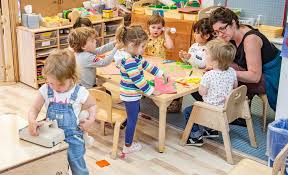

Developmental delays and Autism in a childcare classroom!
Developmental delays and autism in a childcare classroom require thoughtful awareness, early observation, and supportive strategies to ensure every child thrives. Developmental delays can affect speech, motor skills, social interaction, or cognitive abilities. Autism Spectrum Disorder (ASD), a neurodevelopmental condition, may include challenges with communication, sensory processing, and social engagement. Recognizing the signs early in a childcare setting allows for timely support and collaboration with families and specialists.
In the classroom, children with developmental delays or autism may struggle with transitions, group activities, or verbal expression. They might show repetitive behaviors, avoid eye contact, or have difficulty understanding social cues. teachers and caregivers play a key role in observing these behaviors, documenting patterns, and creating individualized support strategies that reduce frustration and build confidence for both the child and the group.
Inclusive practices are essential. Providing visual schedules, sensory-friendly spaces, and simple, consistent routines can help children with ASD or delays feel secure and more able to participate. Small group instruction, one-on-one support, and alternative communication tools like picture cards or gestures also make a big difference in supporting learning and engagement.
Most importantly, fostering a classroom culture of patience, empathy, and acceptance benefits all children. When educators work closely with families, therapists, and inclusion specialists, they create a team approach that respects each child’s pace of development. With understanding and support, children with developmental delays or autism can fully participate, learn, and form meaningful relationships in their early learning environment.




 click and follow Indiaherald WhatsApp channel
click and follow Indiaherald WhatsApp channel